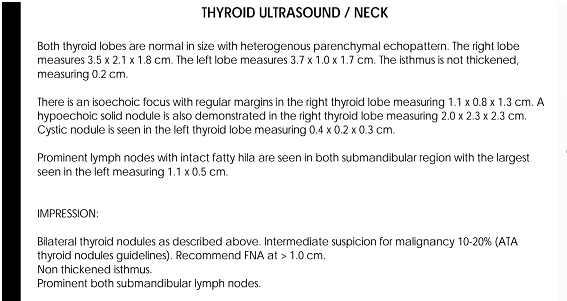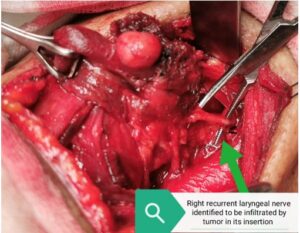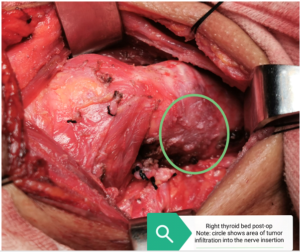WHEN HOARSENESS IS AN OMINOUS SIGN…
Hoarseness lasting more than 2 weeks warrants a consultation with your ENT doctor and neck cancer surgeon as this may be one of the early signs of neck or thyroid cancer.
As in always said in yoga: listen to your smart body. It will tell you what to do. This story is about a 65 year old male patient who consulted because of hoarseness. He initially thought it was just because of “”too much singing”. Upon a lot of prodding from his son , a medical student, he was convinced to go to my clinic.
Upon listening to his voice, it was a little raspy. There was no palpable neck mass. He also told me that he had had voice changes for over 3 weeks. As an ENT doctor and cancer surgeon, we usually do further workups on patients who complain of having hoarseness for over 2 weeks, so he was scheduled for a laryngoscopy immediately.
Hoarseness and Neck Mass
Upon doing a laryngoscopy (where a camera is used to look into a patient’s throat), the right vocal cord was not moving, only the left one.
With a diagnosis of vocal cord paralysis, further workup was done to find out the reason for this. Knowledge of head and neck anatomy is very important in this case. Your ENT doctor and neck cancer surgeon will usually trace the pathway of the vagus nerve (the nerve that supplies your voice) from the brain, looping near the apex of the lungs, before going back to the neck to innervate the vocal cords.
A neck ultrasound and chest xray were requested. Chest xray findings were normal. Neck ultrasound revealed the findings on the image on the right:


Thyroid Surgery
With the solid nodule on the right thyroid gland combined with layrngoscopy findings of paralysis on the right vocal cord, the clinical presumption would still be a carcinoma of the thyroid and the patient was then scheduled for thyroidectomy
During the surgery, the recurrent laryngeal nerve on the right side, at the level of insertion into the area of the vocal cords, was invaded by the tumor. Total thyroidectomy was done which means the total removal of both thyroid lobes.
After Thyroid Surgery
Final histopathology was papillary carcinoma of the thyroid.
The patient was referred to a nuclear medicine center where radioactive iodine treatment was done. Post-operative Radioiodine uptake scan revealed just remnants of thyroid cells in the thyroid bed—that means all grossly visible thyroid was removed. Radioactive iodine treatment was done to get rid of the microscopic cancer cells that may have been left behind.
1 year after, a repeat neck ultrasound was done which showed no recurrence of the tumor and a repeat radioactive iodine body scan revealed an ablated thyroid gland and no evident functioning metastasis.

Experience expert ENT surgical care tailored to your needs.
Book now to schedule your appointment with our skilled ENT surgeon and take the first step towards a healthier you.
Your well-being is our top priority.
